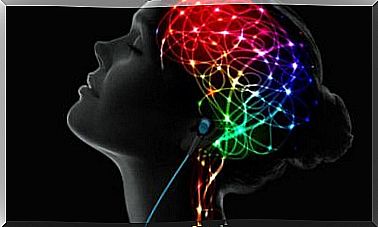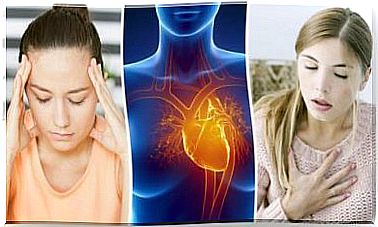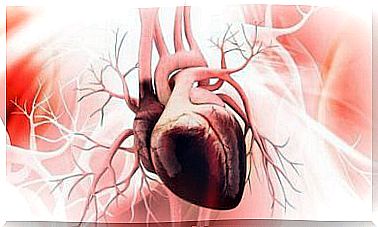Effects Of Alcohol On The Nervous System
The effects of alcohol can range from aggressive and violent behavior to complex diseases of the nervous system.

Alcohol is a drug that is legal and socially accepted. It is indeed the most common drug in the world and that we consume regularly during gatherings, meetings with friends, family meals, etc. But do you know the effects of alcohol on the nervous system?
The effects of alcohol begin with a feeling of excitement and euphoria that gives us a sense of well-being when we ingest it. Unfortunately, many people use it to uninhibit themselves or to calm down.
However, the real effects on our body are not good. Alcohol is a toxic substance that can cause alterations in all of our systems. Indeed, there are many diseases which are linked to the chronic ingestion of this substance.
For example, alcohol is strongly associated with liver dysfunction. This reality has spread among the population. However, not many people know about the effects of alcohol on our nervous system, for example. We discuss them in this article.
What are the effects of alcohol on the nervous system?

The effects of alcohol on the nervous system can be both acute and chronic. The amount ingested and the duration are determining factors. In general, we distinguish acute poisoning from chronic alcoholism.
Acute poisoning
Acute poisoning occurs when very large amounts of alcohol are ingested in a short period of time. At first, it leads to pleasant symptoms such as the above-mentioned disinhibition.
On the other hand, it is necessary to point out that although many people use alcohol to socialize, others have the opposite effects. These individuals can then become aggressive and irritable.
In this case, the effects of alcohol can generate an ethyl coma. It is a state of unconsciousness due to this substance which can be life threatening.
Among the effects of alcohol, we can cite the fact that it is a depressant of our respiratory system. In other words, respiratory failure can lead to death.
Alcoholism
Alcoholism occurs when a person has a strong urge to drink alcohol which causes them to drink it constantly. This substance is indeed capable of producing physical dependence. People who are alcoholics therefore suffer from symptoms of abstinence when they cannot drink.
On the other hand, alcoholism is associated with other processes which, when combined, lead to the development of certain serious neurological disorders. These circumstances are as follows:
- Most alcoholics have nutritional and vitamin deficiencies.
- Other organs such as the liver are affected. Numerous studies show that liver degeneration can cause damage to the nervous system.
- It is common for strokes and head injuries to be due to the effects of alcohol. This can cause bruising and hemorrhaging in the brain which also deteriorates its functioning.
For all these reasons, the effects of alcohol on the nervous system lead to multiple diseases. We cover the most important ones below.
Effects of alcohol on the nervous system: neurological pathologies

Madness
Almost 10% of people with chronic alcoholism suffer from dementia. In other words, they suffer from a deterioration of all their cognitive functions, such as memory and social skills. In this case, the person loses the ability to perform complex activities. It can also lead to changes in his personality and mood.
Degeneration of the cerebellum
The cerebellum is a part of our nervous system that is responsible for muscle coordination and other movements that we do involuntarily. It is estimated that around 50% of alcoholics suffer from damage to the cerebellum. They end up having difficulty speaking, walking and may even begin to have tremors.
Alcoholic polyneuropathy
Another of the effects of alcohol is alcoholic polyneuropathy. It is a disease in which certain nerves degenerate and can no longer perform their functions properly. It is associated with vitamin deficiency secondary to alcohol consumption.
People then begin to gradually lose strength in the limbs. In addition, they experience paresthesias (a tingling sensation in the skin) as well as pain in the limbs. Ultimately, it affects the way they walk.
Effects of alcohol on the nervous system: Wernicke-Korsakoff syndrome
This pathology causes an alteration of consciousness which can go as far as coma. It is caused by the fact that the brain does not properly metabolize glucose and that certain toxic substances accumulate in it.
Conclusion…
The effects of alcohol on the nervous system are varied and complex. These effects occur both with acute poisoning and when the person is chronically alcoholic.
Therefore, if you think you are addicted to alcohol, or that you consume it regularly, try to stay away from it. Your doctor and the many support groups that exist today can help.









